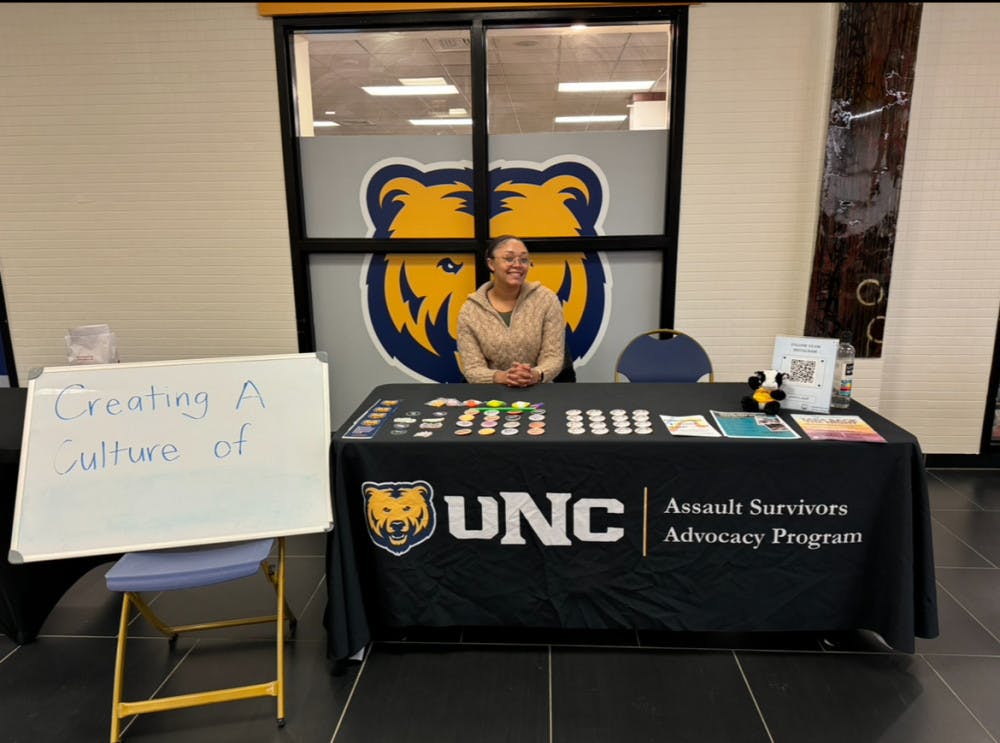Sexual assault and gender-based violence are still a prominent issue at many universities and colleges across the United States. While proper resources and support often aren’t always given to survivors, the Assault Survivors Advocacy Program at the University of Northern Colorado is changing that narrative. ASAP plans to increase public perception of these issues with their events to honor Sexual Assault Awareness Month for the month of April.
Sexual Assault Awareness Month, or SAAM, became nationally recognized in 2000, but its roots began far before that. With the Civil Rights Movement in full swing in the 1940s and 1950s, the discussion of preventing sexual violence through societal change entered the public sphere.

This momentum continued well into the 1970s, when the first rape crisis center was founded in San Francisco, Calif. in 1971. This continued seven years later with San Francisco also being the first city in the U.S. to hold a "Take Back the Night" event.
The movement progressed into 1993, when the Violence Against Women Act was introduced. Major changes in legislation like this showed that national attention needed to be pointed on this issue.
This all came to a head in 2000, when the newly launched National Sexual Violence Resource Center, or NSRVC, polled assault prevention organizations about their preferred color, symbol and month for events to raise awareness about the issue. The results ended in a teal ribbon being selected as the symbol of sexual assault awareness with April being chosen as the month.
The Assault Survivors Advocacy Program, which celebrated its 30 year anniversary last November, has arranged events to coincide with Sexual Assault Awareness Month for many years, each with a different idea at the center of it. Last year, the main notion was “healing is an act of community.” Before that, it was “I choose what defines me.” This year, the theme is “creating a culture of…” and Tara Diltz, graduate advisor for ASAP, said that the focus of this year’s events was to encourage members of UNC campus to take action.
“Last year’s theme was community-centered,” Diltz said. “The year before that it was survivor-centered. So, this year, we wanted to do something that was sort of a call to action. When I was trying to explain how we wanted that to be, I kept using the phrase ‘what we want to create a culture of on our campus?’ Having it as creating a culture of ‘blank’ allows people to put in the word that they feel is the most fitting to them.”
The most prominent event of ASAP’s programming this month is "Take Back the Night", a two mile march around UNC's campus that happened on April 11. The main goal of the march is to uplift the voices of survivors and raise awareness about the issues of sexual violence.

"Take Back the Night" isn’t the only way that ASAP acknowledges SAAM. Other events, such as “culture check trivia” where you can win prizes, along with a screening and discussion of Killers of the Flower Moon were included in ASAP’s programming for the month of April.
Even those who are unable to attend the events are able to show their support for survivors. All month long, ASAP has challenged the UNC community to “paint Instagram teal” by changing their profile pictures to teal to bring awareness to their cause.
Another way that those who want to show their support can do so is by participating in National Denim Day on April 24. To show support, all one has to do is dress in as much denim as possible.
Denim Day began as an act of defiance as a result of an overturned assault conviction in the Italian Supreme Court in 1999. The justices felt that because the survivor was wearing very tight jeans and she must have helped the perpetrator remove them, implying that she gave consent. The following day, the women in the Italian Parliament came to work wearing jeans in solidarity with the victim.
With these events surrounding such a sensitive topic, it is very possible that some survivors of gender-based violence may choose not to attend because of the triggering nature of the topic. Assistant Director of Advocacy Services Imani Lindberg wants those individuals to know that their choice is valid.
“We understand not wanting to attend these types of events, and just not being in that space yet to hear other folks' experiences with gender-based violence [is] totally fine,” Lindberg said. "Obviously, we want people to feel comfortable attending our events, while still creating space for those that maybe do not feel comfortable attending. I think both of those can exist at the same time.”
Those interested in attending any of ASAP’s events can find all the information on the group’s Instagram page: @unco_asap.






